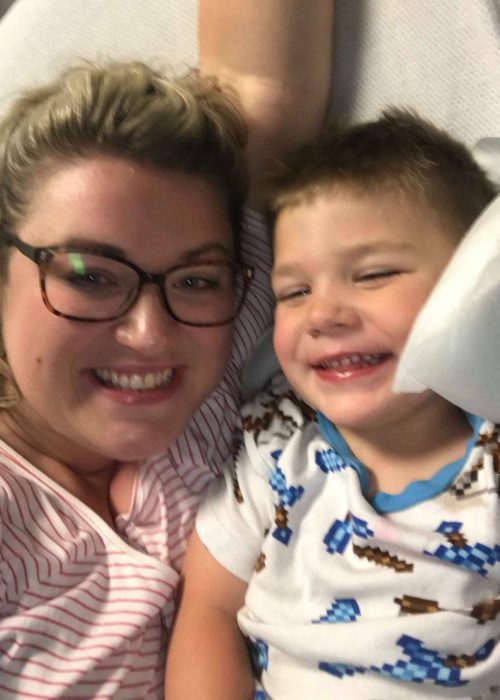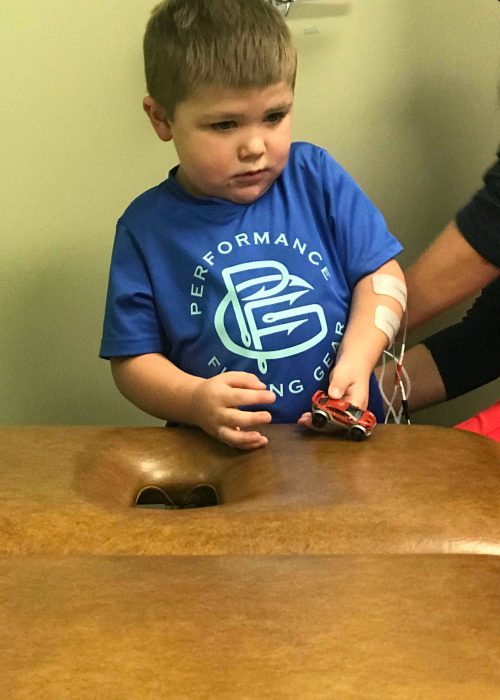A Cartersville, Georgia boy and his mother are one of an increasing amount of families throughout the country who have been dealing with the serious effects of the mysterious disease AFM (Acute Flaccid Myelitis).
On Aug. 30, Cami Abernathy’s son, Carter, lost all ability to move any part of his left arm or hold anything with his hands. His arm was completely paralyzed. A week prior to this, he had a respiratory illness and had been diagnosed with pneumonia.
After being misdiagnosed with nursemaid’s elbow, he was diagnosed with a “probable” case of AFM.
AFM is still a rare condition, but a very serious one. According to the CDC, AFM “affects the nervous system, specifically the area of the spinal cord called gray matter, which causes the muscles and reflexes in the body to become weak.” More than 90 percent of AFM cases affect children.
So far in 2018, there are 90 confirmed cases of AFM and the cases occurred in 27 states across the U.S., according to the Center for Disease Control. This has increased from 33 confirmed cases in 16 states across the U.S. in 2017.
Since Carter was discharged, he has done occupational therapy twice a week and has made huge improvements.
There is a lot of research and information on the CDC, so here is all the information broken down.
Symptoms
Most people will have sudden onset of arm or leg weakness and loss of muscle tone and reflexes. Some people, in addition to arm or leg weakness, will have:
- facial droop/weakness,
- difficulty moving the eyes,
- drooping eyelids, or
- difficulty with swallowing or slurred speech
Most of the patients with AFM (more than 90 percent) had a mild respiratory illness or fever consistent with a viral infection before they developed AFM.
Diagnosis
AFM is diagnosed by examining a patient’s nervous system and pictures of the spinal cord.
Possible Causes
Certain viruses are known to causes AFM including:
- poliovirus
- enterovirus A71 (EV-A71)
- West Nile virus
However, all stool specimens tested by the CDC from AFM patients tested negative for poliovirus. Coxsackievirus A16, EV-A71, and EV-D68 was found in four of the 414 confirmed cases since 2014. For the rest of the patients, no germ was found in the spinal fluid and no cause was confirmed.
Treatment:
- There is currently no treatment for AFM.



















Show Comments (0)